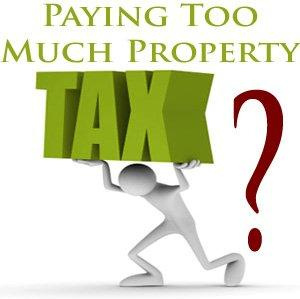Paying property taxes is probably one of the least favorite activities for anyone who owns a home. While it has been established that paying taxes is unavoidable there are some things you can do to reduce the sting a bit. To kick things off,  we’ll describe what property taxes are and why they’re levied in the first place.
we’ll describe what property taxes are and why they’re levied in the first place.
Property tax is a tax which is levied against your home and other real estate that you own. A variety of factors affect how much you will pay in taxes each year, but some of the biggest ones are the true value of your home, your county’s millage rate, the rates applied by any special tax districts that you live in (such as a city or a school board) and your exemptions (such as a homestead exemption). In Florida, around 50% of public education funding and 30% of your local government’s revenues come from property tax. This tells us that your tax money is being put to work and that you’re not getting any of it back without a fight.
In order to lower your taxes, you have to prove that you are being taxed at an unreasonably higher rate than owners of other similar properties. You can do this in a variety of ways. One of the simpler methods is to establish that the assessor made a mistake when he or she evaluated your house. This covers cut and dry mistakes where he got your square footage wrong or said that you have a pool when you don’t. These are usually open and shut cases. If you just bought your house for less than the value it’s being assessed at, you’ve got another solid argument. You can lose appeals like this, but at least it means that you got a great deal on your house.
If neither of these two situations describes you, then you have to prove that the assessor made faulty comparisons when valuing your home. This argument is a lot less clear cut but you can still win. In this case you need to look at ‘comparable’ homes, which are similar to yours in design and reasonably close to yours geographically (i.e. in the same city/county). In order to make a well-founded case, you should visit your property appraiser’s website and learn which factors they consider (square footage, number of bathrooms, etc.) when valuing your home. Many appraiser websites also have a web portal where you can look up information about your home. Once you know where you stand, look at other homes with similar taxable attributes. If their tax rate is lower than yours you might have a case; typically the difference has to be around 10%, but this can vary.
Once you’ve determined that you’re being taxed too highly, you can file a complaint with your local value adjustment board. Each county in Florida has a 5-member board which rules on challenges to a home’s assessment. Value adjustment boards are not able to change the millage rates adopted by local governments, but they are independent of your property appraiser which helps ensure unbiased results when challenges are made.
We hope this post has helped you understand a bit more about how property taxes work and given you an idea of what to do if you think you’re being unfairly taxed. If you’d like to check out interesting community features nearby your home, have a look at the MoversAtlas MoveMap, it makes getting to know your neighborhood easier than ever!

